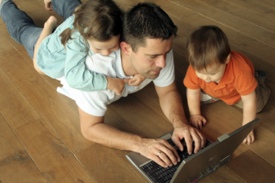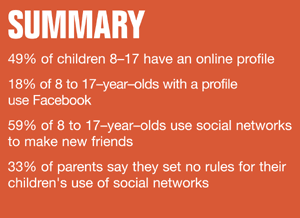 So apparently Britain leads the way when it comes to ‘social networking’. We log on more often and spend more time online ‘talking’ to our friends through Facebook, Bebo and MySpace than any other nation in Europe.
So apparently Britain leads the way when it comes to ‘social networking’. We log on more often and spend more time online ‘talking’ to our friends through Facebook, Bebo and MySpace than any other nation in Europe.
Thousands of us are sharing music, photos and information about ourselves, keeping others updated with when we’re up, what we had for breakfast and what our plans are for the day. We can review our friends’ taste in music and rate how fit they are. We can ‘poke’ someone to remind them of our existence... and all this from the comfort of our living rooms.
Perhaps this shouldn’t come as a surprise... maybe it fits in with our natural British reserve and shyness. We’ve always been difficult people to get to know. We avoid eye contact; we keep ourselves to ourselves; we value our privacy. Yet here we are embracing these social networking sites as if we’re really keen to make and keep as many friends as possible. Could it be that these sites appeal because they allow us to have loads of friends without too much real emotional involvement?
 We can ‘chat’ for hours without revealing much about ourselves. We can appear open and friendly whilst hiding behind laptop screens. We can sound enthusiastic and outgoing yet keep people at arms’ length. We can decline invitations, say ‘no’ without embarrassment and maintain as much privacy as we like.
We can ‘chat’ for hours without revealing much about ourselves. We can appear open and friendly whilst hiding behind laptop screens. We can sound enthusiastic and outgoing yet keep people at arms’ length. We can decline invitations, say ‘no’ without embarrassment and maintain as much privacy as we like.
But how do you nurture a relationship without any real–life involvement? How do you know what others are feeling – and what they need from you – if you can’t see them? How are young people to learn about social skills if they never witness them in real life?
We’ve all heard stories of people ‘dumping’ or being dumped by text and, sadly, too many instances of bullying by text or online. These are such good examples of distancing, of being able to be nasty without any comeback. Not having to face up to the person you’re insulting, upsetting or leaving makes the whole process so much easier. You can probably pretend you’re not hurting someone if you don’t have to see their face and their reaction.
So what does this mean for the future of our young? Will they grow up hard–hearted and cruel? Will they never know the joy of having a true friend and sticking with them through thick and thin? Are we breeding a generation of even shyer youngsters who only ever feel confident in the virtual world and withdraw into their shells in real life?
Somehow I don’t think so. The young have a wonderful opportunity to keep friends rather than lose them. In the past, once someone moved and changed phone number you could lose touch forever. Nowadays, no matter where people go in the world they’re available online. The next generation has the chance to remain in touch with everyone they’ve ever known. They won’t see all those people all the time. They probably won’t have any more true friends than the rest of us. But they will have a vast network available to them – literally at their fingertips – and they’ll be able to chart each others’ lives constantly through updated photo albums and messages.
 The time will surely come soon when the novelty of telling someone you’re ‘just going to the loo’ will wear thin, but the sites themselves will remain a really rich resource – far superior to the old Little Black Book in content and flexibility – and enabling people to keep in touch with favoured friends for the rest of their lives.
The time will surely come soon when the novelty of telling someone you’re ‘just going to the loo’ will wear thin, but the sites themselves will remain a really rich resource – far superior to the old Little Black Book in content and flexibility – and enabling people to keep in touch with favoured friends for the rest of their lives.